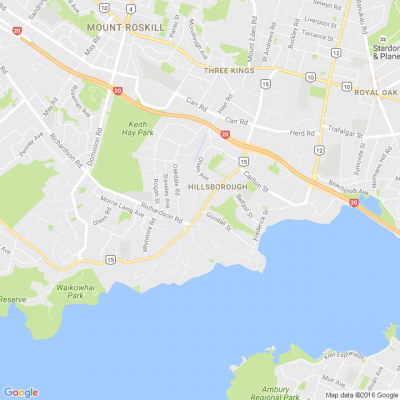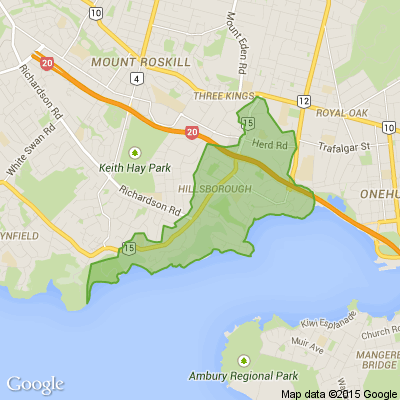What’s the cheapest supermarket?
This is the first story in a Consumer NZ investigation into New Zealand’s supermarket prices. In our second story, we’ll delve into the confusing and murky world of supermarket specials.
New Zealanders are still feeling the pain at the checkout. In Consumer’s latest Sentiment Tracker survey results, the cost of food and groceries was respondents’ most widespread concern for the coming 12 months.
In our supermarket investigation, we tracked online prices for a basket of 22 grocery items for 8 weeks at New World, Pak’nSave and Woolworths stores in Auckland, Wellington and Christchurch in our quest to find the cheapest supermarket. We also calculated the savings made by Woolworths’ and New World’s loyalty card members.
End dodgy 'specials' at the supermarkets
=================================
We have been looking into loyalty pricing – we don’t think loyalty schemes always offer the most competitive price. If you see any examples of products with a big difference between member and non-member pricing please share it with us.
Consistently the cheapest
=====================
Pak’nSave – with its claim of having “New Zealand’s lowest food prices” – was the cheapest store in our survey in all three regions.
On average, across all regions, our basket of goods from Pak’nSave was $116.18, nearly $14 a week cheaper than the average basket of the same items for New World Clubcard members (the second cheapest store in our survey). That’s a saving of more than $700 a year.
The savings were even greater when compared with the average cost for Woolworths loyalty members (savings of $15.87 per week/$825 per year).
New World customers who weren’t loyalty club members paid the highest price at the checkout in the stores we surveyed (an average of $138.35 across all regions). There was little savings benefit for Woolworths Everyday Rewards members – on average, swiping your card would have saved less than $1.60 each week.
We weren’t surprised that prices have significantly increased since our equivalent 2020 survey. A very similar basket of goods cost 30% or more in 2024 at all the supermarkets we surveyed again.
Increasing grocery prices
====================
It’s no surprise that food and grocery prices have taken a hike in the past few years – we’ve all been feeling the dent in our weekly supermarket budget.
According to the Grocery Commissioner’s 2024 First Annual Grocery Report, grocery food prices increased more than any other common household expense between 2019 and 2023. A Statistics New Zealand Household Economic Survey found that per week on average, households spent $214 on grocery food in 2023, up from $166 in 2019.
The Grocery Commissioner’s report also states that in 2022, New Zealand had the fourth highest grocery expenditure in the OECD – we’re spending more on groceries than people living in Australia and the UK.
In 2020, we tracked the prices of a very similar basket of goods in the same Auckland and Wellington supermarkets. The basket also contained 22 items – the only difference in the 2024 baskets was the brand of peanut butter and toilet paper.
While we expected prices to have increased, we were surprised by how much. In Auckland, Pak’nSave Mt Albert prices had increased by 33%, Woolworths Mt Eden by 37% and New World Mt Roskill by 37%.
It was a similar story in Wellington. We recorded price increases of 31% at Pak’nSave Lower Hutt, and 37% at both Woolworths and New World’s Lower Hutt stores.
Foodstuffs said: Two-thirds of the price on the shelf is our cost of buying products from suppliers – it’s 68 cents in every dollar. We’ve seen a higher rate of supplier cost increases which we’ve been absorbing where we can to ensure these don’t get passed on to New Zealanders at the checkout.
Beware the loyalty lure
===================
New World and Woolworths both offer a loyalty rewards programme. These programmes are big business. New World’s and Woolworths’ offerings each have 1.6 million members, and a Consumer NZ poll of 1,650 supporters found 84% belonged to a supermarket loyalty programme.
While loyalty cards offer benefits such as accumulated rewards and points, their main appeal is the discounted prices at the checkout. But we found that belonging to a loyalty programme doesn’t always reward you with the lowest prices.
Overall, in each region, Pak’nSave (which doesn’t require customers to be loyalty programme members to get a cheaper price) was the cheapest supermarket to shop at for our basket of goods. As well, some products marked as member or club deal specials at Woolworths and New World were cheaper at the no-frills retailer.
For example, at New World Lower Hutt, Clubcard members paid $2.99 for 4 weeks of our survey for Palmolive Dishwashing Liquid 500ml (its regular price was $3.89). However, over the same 4 weeks, the same product could have been purchased at Pak’nSave Lower Hutt for $2.79 or less.
On 17 July, Woolworths Everyday Rewards members could buy Chelsea White Sugar 1.5kg at its Mt Eden store for $3.80 (regular price $4.89). But on the same day all shoppers at Pak’nSave Mt Albert would pay the regular price of $3.79.
In March, we warned people to be wary of supermarket loyalty programmes and questioned the value of them.
Consumer’s head of research and advocacy Gemma Rasmussen said if you’re providing the supermarket with your personal data, purchase history and shopping habits, you should be getting a fair discount in return. Our latest survey shows this isn’t always the case.
Over the 8 weeks of our survey, Woolworths Everyday Rewards members saved on average less than $1.60 per week on our basket of goods. New World members fared better, particularly in the South Island. New World Bishopdale Clubcard members saved on average $11.72 on our basket of goods, compared with New World Mt Roskill and Lower Hutt members who saved approximately $6.50 on average per week.
The commissioner’s grocery report is also scathing of loyalty programmes. It states that despite their potential benefits, loyalty programmes can reduce price transparency and make it more difficult for consumers to make informed decisions. It also said its market study into the grocery sector found consumer understanding of the schemes was low, particularly about how rewards are earned and redeemed.
Another concern we have with loyalty programme discounts is whether non-member prices are inflated to create the illusion of a special for members.
Will we ever see cheaper supermarket prices?
=====================================
There are significant issues with the state of the supermarket sector in New Zealand. Consumer applauded the Grocery Commissioner’s first annual grocery report, which provides much needed transparency on the concerning state of the supermarket sector. However, it’s dismaying the sector has seen no meaningful improvement since the commissioner’s market study was released in 2022.
There’s a lot that needs to change – from fixing pricing inaccuracies to reducing the barriers for a new supermarket player. We anticipate these changes will be slow to happen and even slower to make a meaningful impact at the checkout, and the grocery commissioner has been quick to emphasise that himself.
We think the government needs to keep a closer eye on the grocery sector and be ready to take more intensive action if we don’t see improvement in the sector soon, especially considering the financial stress being experienced across Aotearoa.
In the interim, we’ll continue to advocate in this space, from calling out government when we think progress isn’t fast enough, to mystery shopping everything from unit pricing to dodgy pricing specials.
About our survey
==============
We tracked the online price of 22 products for 8 weeks. As well as food and drink, cleaning products were also on our shopping list. We didn’t include fresh meat or produce because for a fair comparison we’d need to consider quality. Wine and beer were also excluded.
In most cases, all items were the same brand and size in each supermarket (we didn’t track supermarket home brands). The exceptions were in New World and Pak’nSave Christchurch stores, where we substituted Anchor 2L Standard Milk for MeadowFresh 2L Standard Milk. Some weeks, Purex 12-roll toilet paper was not available, so we substituted for Purex 6-roll Mega-Long (which has more sheets per packet). Where multi-buys were offered and cheaper, we calculated a single item price.
================================================
www.consumer.org.nz...
===============================================

Best way to use leftovers?
I'm sure you've got some excess ham at home or cold roast potatoes.
What are some of your favourite ways to use leftover food from Christmas day? Share below.

Te Pūrākau o Te Rangatira Ngākau Hūmarie - Day 34
The Tale of the Humble Leader
In a small Māori village near the coast of Aotearoa, the whānau were preparing for Te Rā o te Kirihimete (Christmas Day). It was a time of celebration, sharing, and remembering the values of aroha (love), manaakitanga (hospitality), and kotahitanga (unity). However, this year, the village faced a challenge. Their rangatira, Wiremu, had grown distant and prideful, burdened by his position.
Wiremu often made decisions alone, thinking that his wisdom and authority were enough to guide the iwi. While the villagers respected him, they felt unheard, and the spirit of unity began to fade.
As the Kirihimete celebrations approached, the kaumātua, Hinewai, decided to intervene. She invited Wiremu to the marae one evening, where she shared a story about Tāwhaki, the demigod who ascended to the heavens not through power, but through humility and service.
“Wiremu,” Hinewai said, “even the greatest leaders are at their strongest when they serve their people. Leadership is not about standing above others but walking beside them.”
Wiremu reflected on her words but was unsure how to change.
The Lesson of the Whetū (Stars)
On Christmas Eve, as the village prepared for their festivities, a fierce storm rolled in from the sea. The winds howled, and the rain poured, threatening to ruin the celebration. The central whare kai (dining hall) began to leak, and the decorations the tamariki had made were soaked. The people gathered anxiously, unsure of how to proceed.
Wiremu stood at the edge of the marae, looking at the chaos. In that moment, Hinewai’s words echoed in his mind: “Even the greatest leaders serve their people.”
Without hesitation, Wiremu took off his korowai (cloak of leadership) and joined the villagers. He grabbed buckets to catch the rain, helped rebuild the decorations, and reassured the tamariki that their work would be restored. His humility inspired others, and soon the entire iwi was working together, laughing and singing as they prepared the whare for the celebration.
A Kirihimete Under the Stars
When the storm cleared, the sky was filled with bright whetū (stars). The villagers gathered around a glowing fire outside the whare, sharing kai and stories of gratitude. Wiremu stood among them, no longer as a distant rangatira, but as a friend and servant of his people.
Under the starlit sky, Hinewai stood and addressed the iwi.
“This Kirihimete, we are reminded that true leadership is like the brightest whetū. It does not shine to outdo others but guides them through darkness. Wiremu has shown us the power of humility, and through his service, we have rediscovered our unity.”
Wiremu bowed his head humbly. “Tonight, you have all taught me that a leader is nothing without their people. Let us carry this spirit of kotahitanga and aroha into the new year.”
The villagers cheered, and the spirit of Te Rā o te Kirihimete shone brightly in their hearts.
Moral of the Story:
Leadership is not about authority or pride but about humility and service. Like the whetū that guide travelers, a true leader walks alongside their people, bringing light and unity through service and aroha. At Christmas, we are reminded of the importance of giving, humility, and leading with love.
⚠️ DOGS DIE IN HOT CARS. If you love them, don't leave them. ⚠️
It's a message we share time and time again, and this year, we're calling on you to help us spread that message further.
Did you know that calls to SPCA about dogs left inside hot cars made up a whopping 11% of all welfare calls last summer? This is a completely preventable issue, and one which is causing hundreds of dogs (often loved pets) to suffer.
Here are some quick facts to share with the dog owners in your life:
👉 The temperature inside a car can heat to over 50°C in less than 15 minutes.
👉 Parking in the shade and cracking windows does little to help on a warm day. Dogs rely on panting to keep cool, which they can't do in a hot car.
👉 This puts dogs at a high risk of heatstroke - a serious condition for dogs, with a mortality rate between 39%-50%.
👉 It is an offence under the Animal Welfare Act to leave a dog in a hot vehicle if they are showing signs of heat stress. You can be fined, and prosecuted.
SPCA has created downloadable resources to help you spread the message even further. Posters, a flyer, and a social media tile can be downloaded from our website here: www.spca.nz...
We encourage you to use these - and ask your local businesses to display the posters if they can. Flyers can be kept in your car and handed out as needed.
This is a community problem, and one we cannot solve alone. Help us to prevent more tragedies this summer by sharing this post.
On behalf of the animals - thank you ❤️








 Loading…
Loading…




